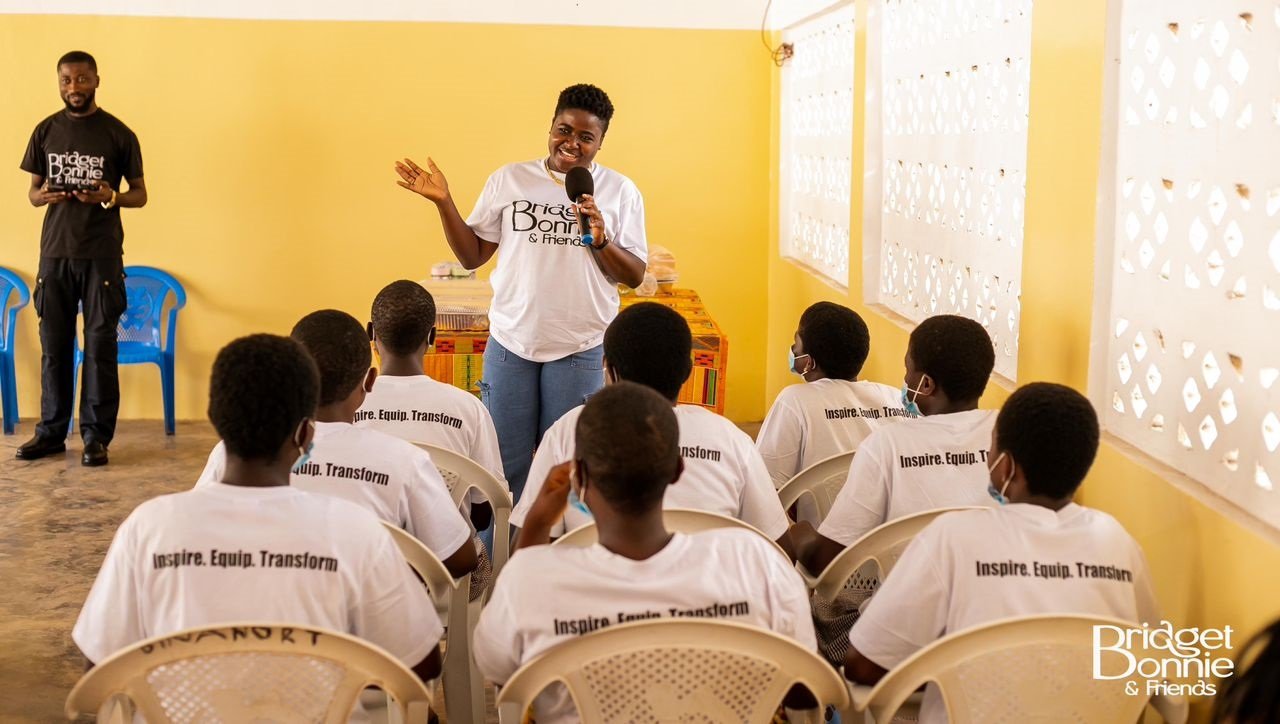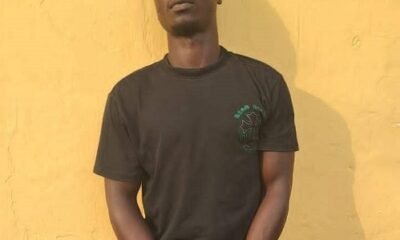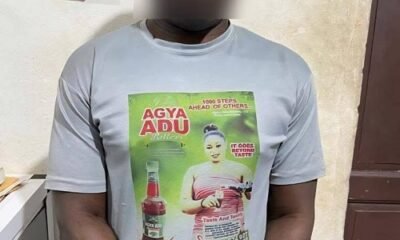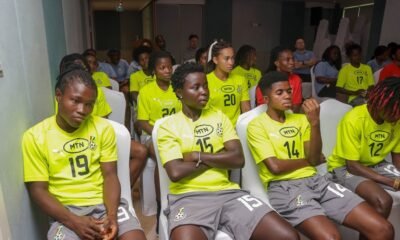News
Address systematic issues surrounding juvenile correction – Child Rights Advocate

Child Rights Advocate and Politician, Ms Bridget Bonnie, has urged the public to support the reintegration of juveniles back into society after completing their sentences.
She also called for increased attention from policymakers and the public to address systemic issues surrounding juvenile correction such as the right infrastructure and environment.
Speaking during a recent visit to the Junior Girls Correctional Center in Accra to celebrate the reintegration of one of the girls who had completed her sentence, she also urged the children not to allow their past affect their future development.
She added that, “you can live a very impactful lives and contribute meaningfully to the growth of Ghana, if you stay focus and put yourself on the right path.”
“True reintegration means giving them the opportunity to rebuild and thrive. They may be behind walls today, but their dreams and potential deserve a chance,” said Bridget Bonnie.
The visit dubbed “Hope Beyond the Walls” saw Bridget Bonnie and her friends donate essential items including bunk beds, mattresses, sanitary pads, toothpaste, underwear, spaghetti, canned fish, rice, sugar, cooking oil, drinks and water to the center.
“These contributions brought comfort, dignity and a sense of hope to the young girls, and many whom are survivors of abuse or missing children,” she stated.
The team also hosted a party for the girls and children at the center where they shared food and drinks, amidst music and heartfelt conversations, in a bid to create a much-needed atmosphere of warmth, healing and encouragement.
Ms Bonnie also bemoaned the lack of proper educational support and vocational instructors to support the children within the facility.
In his reaction to that, the Regional Minister for Ahafo, Mrs Charity Gardiner, pledged her personal and institutional support to assist the reintegrated young lady in learning a trade and rebuilding her life.
She also expressed her willingness to support broader reintegration efforts for the other girls.
A Psychologist and Youth Advocate Dr Juliet Yayra Tengey, also offered words of encouragement and emotional support emphasising on the power of healing, forgiveness and the importance of self-worth.
“Your past does not define your future. You have every right to dream again and live again,” she stated.
On her part, the Unit Head of the Correctional Center, Madam Vida Naa Ashiokaa Noye, expressed gratitude to Bridget Bonnie and the team.
“It’s not every day that people remember these girls. What you have done today is not just about the donations, it’s about the dignity, love and hope you have restored in them. It means a lot to us and to the girls,” she stated.
She also called for increased attention from policymakers and the public to address systemic issues surrounding juvenile correction and reintegration.
By Esinam Jemima Kuatsinu
News
Man sentenced to 25 years for robbery at Manso Akwasiso

A 30-year-old man has been sentenced to 25 years imprisonment with hard labour by the Bekwai Circuit Court for his role in a 2022 robbery at a mining site at Manso Akwasiso in the Ashanti South Region.
The convict, Dominic Ofori, also known as Fanta, was arrested on 16th February 2026 after years on the run. He pleaded guilty before the Bekwai Circuit Court to robbery contrary to Section 149 of the Criminal Offences Act, 1960 Act 29, and was accordingly sentenced to 25 years imprisonment with hard labour.
On March 20, 2022, the Manso Adubia District Police received intelligence that a group of armed men from Manso Abodom were planning to attack a mining site at Manso Akwasiso to rob the owner of gold concentrate. Acting on the information, police mounted a coordinated operation and laid an ambush at the site.
At about 5:30 pm the same day, four-armed men arrived at the site, fired indiscriminately, and robbed the miners of their gold concentrate. The police team on surveillance intervened, resulting in an exchange of gunfire.
Three of the suspects, Abu Abubakar, Musah Latif, and Gideon Takyi, sustained gunshot wounds and were pronounced dead on arrival at St Martins Catholic Hospital at Agroyesum. Dominic Ofori escaped at the time but was later arrested and put before the court.
The Ashanti South Regional Police Command has assured the public of its continued commitment to combating violent crimes and bringing offenders to justice.
News
Ashanti police arrest man for publishing false news on TikTok

The Ashanti Regional Police Command has arrested 45-year-old Isaac Boafo, also known as “Duabo King,” for allegedly publishing false news intended to cause fear and panic.
Police said the arrest follows a viral TikTok video in which Boafo claimed that four officers at the Central Police Station in Kumasi engaged in inappropriate conduct with commercial sex workers during night patrols in Asafo.
Officers from the Police Intelligence Directorate (Ashanti Region) apprehended Boafo after receiving intelligence about the video.
During questioning, he admitted to creating the video to attract views and engagement online, and acknowledged that he could not prove the allegations.
Boafo also admitted making comments about the President of the Republic for content purposes and could not defend those statements.
He has been formally charged and is in detention as investigations continue.
The Ashanti Regional Police have warned the public against publishing or sharing false information on social media, noting that such acts can cause fear, panic, and damage reputations.
They said anyone found engaging in similar conduct will face legal action.
By: Jacob Aggrey














